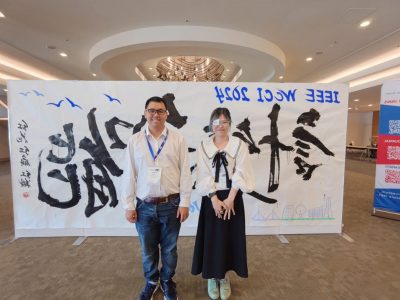
Dr Kate Han showcases Innovative Machine Learning and Evolutionary Algorithm Research at IEEE WCCI 2024
Salford Business School's Dr Kate Han recently presented her machine learning and evolutionary algorithms research at the prestigious IEEE World Congress on Computational Intelligence in Yokohama, Japan.